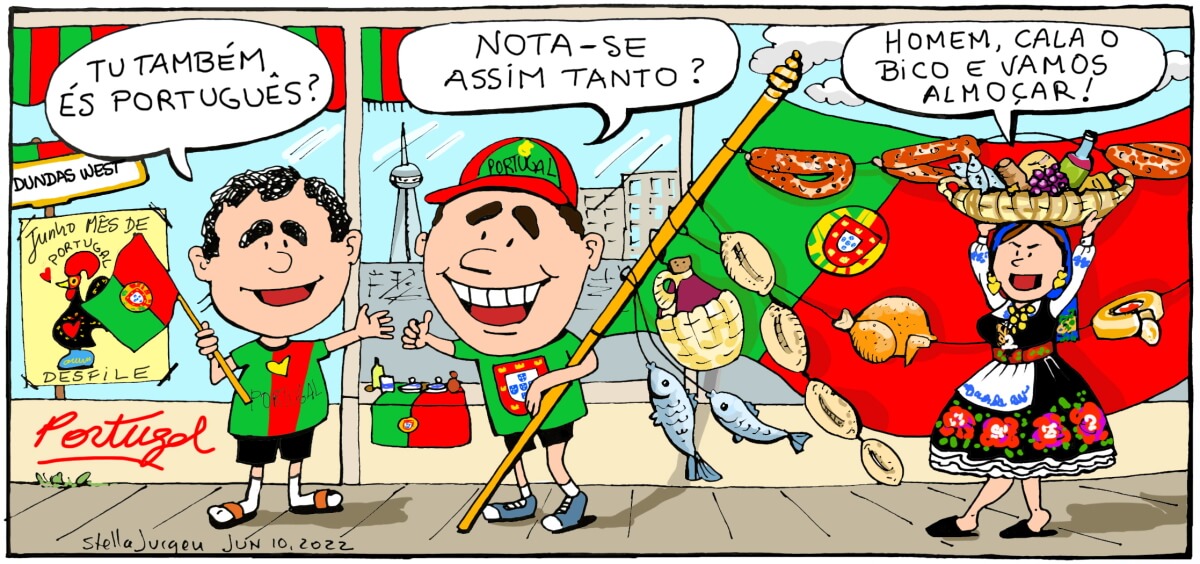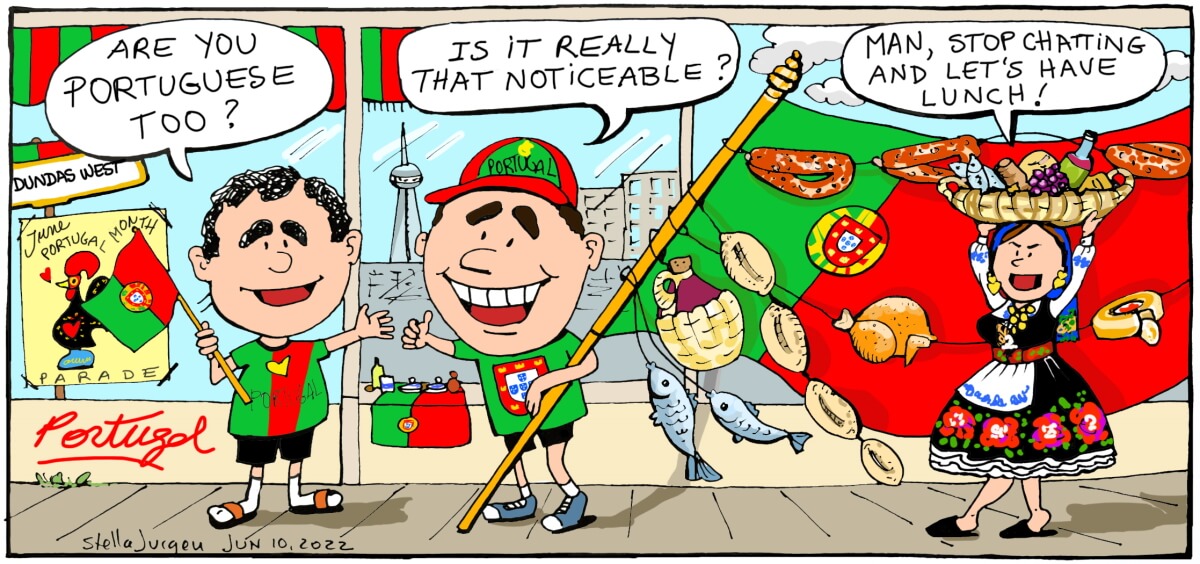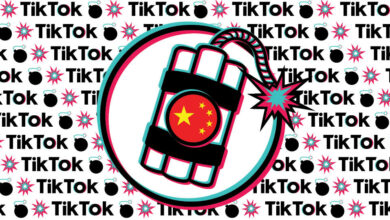A celebração de junho como o mês de Portugal no Canadá trará uma cornucópia de eventos e celebrações onde os atos de cantar o hino e de içar a bandeira providenciam o simbolismo necessários para dignificar estes eventos. Os hinos em particular, com suas músicas e letras empolgantes, identificando movimentos culturais e pontos de vista, despertam sentimentos emocionais no interior de indivíduos patriotas e unifica nações através do fio comum que a canção transmite. Juntos, com a bandeira nacional do país, os hinos são um veículo de esperança e orgulho nacional.
Celebrações onde “A Portuguesa” é cantada e onde a bandeira é exibida, podem muitas vezes trazer emoções incontroláveis que levam a consequências tumultuosas como vemos nos jogos de futebol nacional. Além disso, são combatidas guerras em nome de uma bandeira que nos concede a nossa identidade, tal como observamos atualmente na Ucrânia.
Sendo que os hinos e as bandeiras reconhecem países e culturas, existe um papel importante na unificação de quem e com o que nos identificamos. Independentemente da nossa opinião sobre qualquer país, a presença de uma bandeira e de um hino é motivo para parar e respeitar os indivíduos comuns que hoje compõem a diáspora no local de onde vivem.
No dia 10 de junho, Dia de Portugal, a bandeira estará içada em milhões de localizações, possivelmente com a cara limpa digna do dia que celebra no alto de um poste, garantindo a sua veneração, flutuando ao vento, querendo respeito. A história de um país, para aqueles que escolhem ou querem compreender, a bandeira está lá para falar aos olhos que a reparam. A bandeira portuguesa – com o verde a representar a esperança de uma nação, o vermelho sendo o sangue derramado por aqueles que a defenderam, o escudo vermelho representante das vitórias, o azul a retratar os cinco reis mouros mortos com cinco pontos para as cinco chagas de Cristo e os sete castelos retirados aos mouros por D. Afonso I – dispõe a história de um país que, tomado pelo valor da realidade de hoje, poucos seriam capazes de se identificar. Tal como a predominância da cor da bandeira (vermelho) sugere, muito mais sangue do que esperança (verde), de alguma forma é emblemático do povo português e isso permanece até hoje.
Ao gritarmos “A Portuguesa” com o fervor do nosso patriotismo ou nacionalismo conveniente, a maioria murmura as palavras porque não se deram ao trabalho de as aprender ou apenas se lembram delas quando a ocasião assim o dita. A questão é “sentimos realmente as palavras?” A versão moderna do Hino Nacional Português foi adotada no século XIX e reflete o movimento republicano que se opunha ao estilo de vida luxuoso da monarquia, e daí as cores da bandeira. O ritmo e a letra foram harmonizados em 1957 pelo governo fascista. A letra foi criada no contexto de contrariar o ultimato britânico que exigia que Portugal se retirasse de África. Escutando atentamente as palavras que compõem “A Portuguesa”, o processo de pensamento transforma-se num que nos questiona se as palavras ainda são aplicáveis aos tempos em que vivemos, embora sejam um símbolo da nossa história, as palavras não são tão metafóricas. Portanto, hoje, ao cantarolar as palavras do hino existe um sentimento de contradição em relação à realidade atual. Sim, somos heróis do mar, mas talvez agora os únicos guerreiros são os homens e mulheres que trazem o peixe para terra. Somos uma nação valente e imortal, mesmo que a bravura e imortalidade dos portugueses possa ser questionada e a inspiração para erguer novamente o esplendor de Portugal não seja necessariamente um grito de guerra, mas simplesmente como um sinal de respeito pelo próprio país. As próximas linhas sugerem que as brumas da memória da pátria onde os nossos antepassados geraram o caminho para a vitória, podem ser contrapostas por períodos de opressão do seu povo e de outros ao longo dos séculos. O apelo às armas em terra e no mar para lutar por uma pátria que não precisa de defesa contra os britânicos não é aplicável e evoca imagens de uma cultura regressiva que vive no passado.
Não estará na altura de modernizar o hino? Talvez, e se não, pelo menos é necessário germinar um pensamento moderado sobre o texto. O hino não é representativo de quem somos como nação e dos cidadãos de uma sociedade progressiva tal como Portugal é hoje. Sim, deixem a bandeira por motivos históricos, mas, no hino, alterem as palavras que simbolizam aquilo que eu sou.
Viva Portugal.
Manuel DaCosta/MS
Version in english
Anthems of Life
Celebrating June as Portugal month in Canada will bring a cornucopia of events and celebrations where the singing of anthems and raising of flags provide the symbolism necessary to dignify the events. Anthems in particular with their rousing music and lyrics identifying cultural movements and points of view, stirs emotional sentiments inside patriotic individuals and unifies nations by the common thread the song emits. Together with the country’s national flag, anthems are a vehicle of hope and national pride.
Celebrations where “A Portuguesa” is sang and the flag is displayed, can often bring uncontrollable emotions leading to fractious consequences such as at national soccer games. Also, wars are fought under the flags which give us our identity such as we currently can observe in Ukraine.
As anthems and flags identify countries and cultures, there’s an important role in unification of who and what we identify with. Regardless of what our opinion is about any country, the presence of a flag or an anthem gives reason to pause and respect the common people that today make up the diaspora of the place they live.
10th of June, Portugal Day, the Portuguese flag will be displayed in millions of locations, possibly with a clean face deserving of the day which it celebrates atop a pole, giving it its reverence, floating in the wind wanting respect. The history of a country, for those who choose or care to understand, the flag is there to speak to the eyes that look up at it. The Portuguese flag with green for the hope of a nation, red for the blood shed by those who chose to defend it, the red shield representing victories, the blue depicting five dead Moorish kings with five dots for the five wounds of Christ and the 7 castles taken from the Moors by Afonso I, provide the history of a country that taken at face value of today’s reality, few would be able to identify with. As the predominant colour of the flag (red) suggests much more blood than hope (green), somehow is emblematic of the personas of Portuguese people and that carries on to today.
As we shout the “A Portuguesa” with the fervour of our patriotism or convenient nationalism, most mumble the words because they haven’t taken the time to learn them or only remember them when the occasion dictates. The question is “do we really feel the words?” The modern version of the Portuguese National Anthem was adopted in the 19th century and is reflective of the republican movement who were opposed to the monarchy’s lavish lifestyle, thus the colours of the flag. The tempo and lyrics were harmonized in 1957 by the fascist government. The lyrics were created in the context to counter a British ultimatum suggesting that Portugal retreat from Africa or else. In listening closely to the words that comprise the “A Portuguesa,” the thought process becomes one that asks of ourselves if the words are still applicable to the times we live in, while they are a symbol of our history, the words are not as allegorical, therefore when crooning the anthem words today, there’s a feeling of contradiction as to the current realities. Yes, we are heroes of the sea, but perhaps now the only warriors are the men and women who bring the fish to the shore. We are a valiant and immortal nation, even if the fearlessness and immortality of Portuguese could be questioned and the inspiration to rise up once more the splendor of Portugal, isn’t necessary as a war cry but should be simply as a sign of respect for the country itself. The next lines suggest that the mists of memory for the homeland where our forefathers provided the path to victories, can be countered by periods of oppression of its people and others over the centuries. The calling to arms on land and sea to fight for a homeland that needs no defense against the British is not applicable and conjures up images of a regressive culture living in the past.
Isn’t it time to modernize the anthem? Perhaps, and if not, at least a sober second thought about the wording is in order. The anthem is not representative of who we are as a nation and people in the progressive society that Portugal is today. Yes, leave the flag for historical purposes but change the words that signify who I am on the anthem.
Manuel DaCosta/MS









Redes Sociais - Comentários